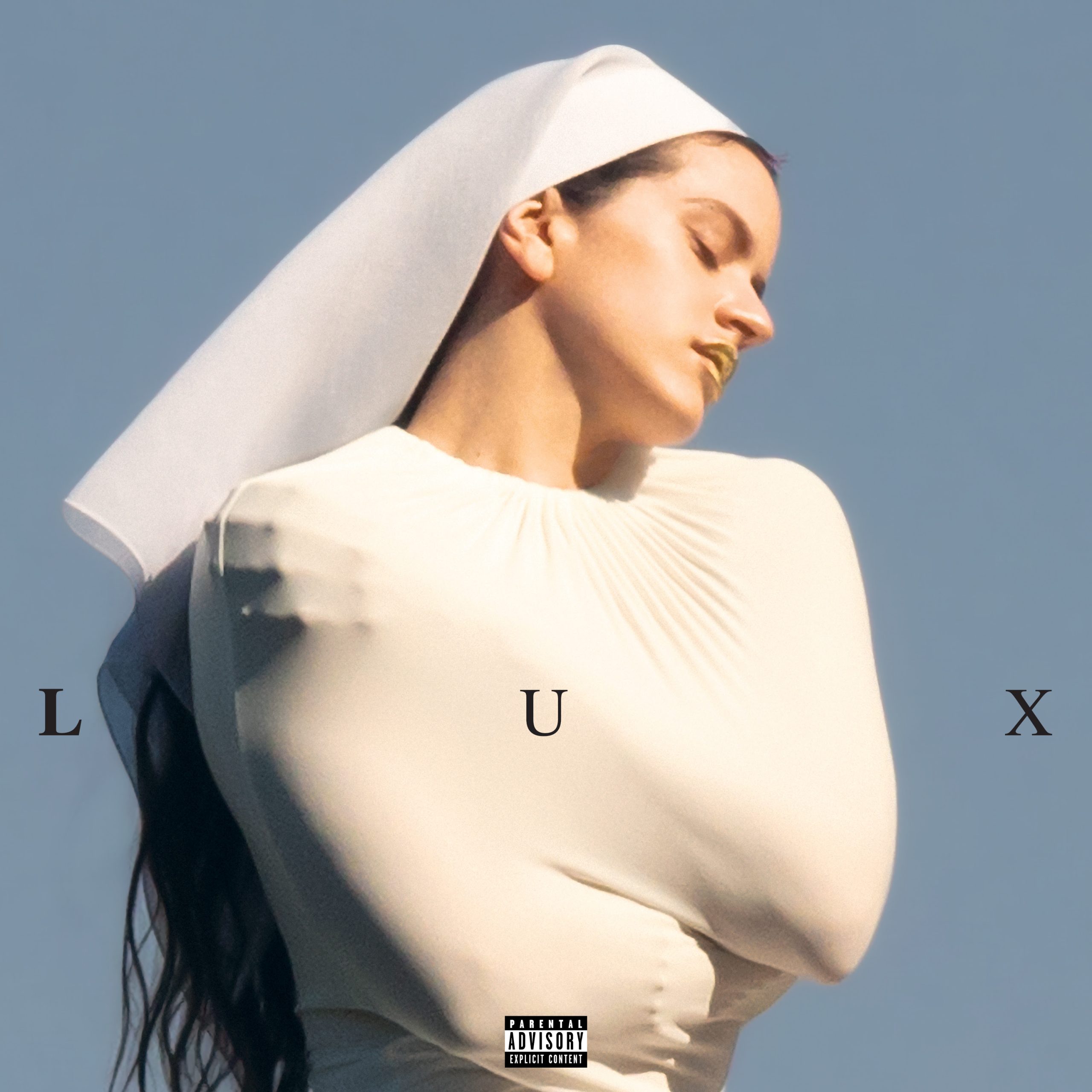Label: Columbia Records
Released: 14th November 2025
ROSALÍA has never been the easiest pop icon to pin down. Every era arrives with a new idea to inhabit and a new set of rules to test. ‘El Mal Querer’ turned scholarship into pop myth, rebuilding flamenco with the certainty of someone who knows the source material and the circuitry. ‘Motomami’ blew that image apart, an internet-age self-portrait that moved at feed speed and still carried unmistakable authorship. It put her in galleries and in memes, on festival posters and timelines, and left her with something even rarer: room to choose the next move without asking permission.
‘LUX’ uses that space. Four movements; the London Symphony Orchestra under Daníel Bjarnason; a chorus of women’s voices drawn from different traditions – Björk, Carminho, Estrella Morente, Silvia Pérez Cruz, Yahritza – plus the Escolania de Montserrat alongside the Cor Cambra del Palau de la Música Catalana. Thirteen languages, folded into the musical fabric. She previewed the work in Barcelona, establishing its visual grammar with ‘Berghain’ and an orchestra in the street trailing a solitary figure. None of this plays like a prestige exercise. It’s a framework for a particular kind of elevated pop.
The album presents itself like a cathedral that opens at dusk and lets the street in. The architecture is vertical rather than restless; lines climb and settle where ‘Motomami’ ricocheted. Orchestras and choirs aren’t there to gild the edges but to carry weight: the sense of pulse when there’s no drum kit, the oxygen a synth would once have supplied. You hear how different vowels and consonants pull the line into new shapes, how pronunciation becomes part of the rhythm of a phrase.
The opening movement establishes that grammar. Titles like ‘Sexo, Violencia y Llantas’, ‘Reliquia’, ‘Divinize’ and ‘Porcelana’ read like chapter headings and sound like them too; the pieces tell you, without fuss, how high the walls are and how the light falls. When she reaches for the sacred register in ‘Mio Cristo Piange Diamanti’, it lands as lived fascination rather than a borrowed halo. By the time the act closes, you know how the record intends to breathe.
The second stage gives the clearest view of the pivot. ‘Berghain’ sits at the centre, a ritual set in modern space, orchestra as actor rather than backdrop. The piece expands and contracts; the resolution earned, not engineered. ‘La Perla’ stands at the sharp end of the secular axis, a break-up song written with precision rather than spectacle. Scene-setting pieces guide the ear from glare to half-light without pulling you out of the nave.
The third tightens around the record’s uneasier modern thread. ‘Dios es un Stalker’ makes an explicit join between devotion and surveillance. ‘La Yugular’ moves like a hand on a pulse; ‘Sauvignon Blanc’ tilts the palette just when it’s needed, a slight change of colour that keeps the arc from calcifying.
The final movement is where ‘LUX’ earns its scale. ‘La Rumba del Perdón’ is the forgiveness song that refuses sentimentality; voices gather and peel away, the floor stays firm, and the lift comes from harmony rather than sheer volume. ‘Memória’ and ‘Magnolias’ draw the lens inwards until orchestral mass becomes a way to hold still. Across these closing pieces, the guests feel like counterpoints rather than cameos, widening the room without blurring the author.
If you came for the instant hit rate of ‘Motomami’, you won’t find it here. That isn’t the offer. ‘LUX’ asks for a different kind of attention and pays back that investment with interest in placement: a cadence that waits half a breath before resolving, a choir that carries a line the last few feet instead of announcing itself. The record still moves on pop time; it simply measures that time in arches and echoes rather than jump cuts.
What impresses is how much intimacy that scale can hold. The orchestration gives ROSALÍA room to stand still and still be heard. The choirs work as rhythm, while the language palette keeps the vocals curious and full of life. On a less sure album, this much grandeur would smother the person inside it. Here, you don’t lose sight of the author. She’s in the phrasing, the structural choices, the way a section ends when it’s finished rather than when the arrangement has run out of tricks.
It would be easy to file ‘LUX’ under classical crossover and move on, but it’s far more interesting than that. This is a pop record that thinks in movements and writes for breath, that treats the ornate power of choral grandeur or orchestral scale in the same way you might digital synthetics, that brings saints and streetlights into the same frame. It’s also the next step in a career that’s been about method as much as genre. ‘El Mal Querer’ drew power from form; ‘Motomami’ from fracture; ‘LUX’ from height. Different materials, same author.
What lingers isn’t the guest list or the language tally. It’s authority. A singer at full stretch without strain. A writer and arranger who knows when to hold and when to let go. ‘LUX’ doesn’t shout its ambition; it builds it where the weight can be felt most. It’s hard to imagine anyone else making this record, even harder still to imagine they could possibly pull it off. An indefinable talent, ROSALÍA remains firmly in her own tier.

Leave a Reply